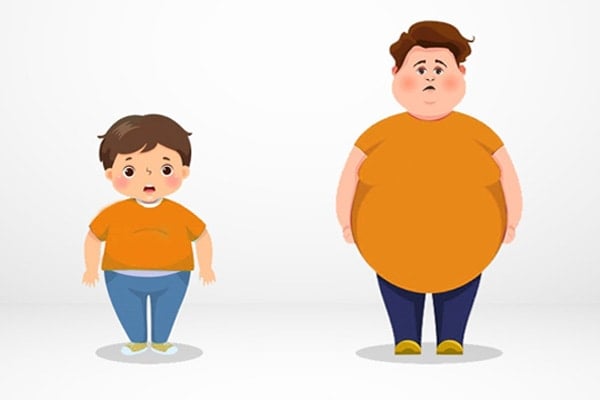Obesity in children raises alarm

Strict measures to promote healthy eating in some European countries have helped stabilize childhood obesity rates in recent years. However, global health officials say these levels remain unacceptably high. A new report says childhood obesity remains a major problem in Europe, posing "life-threatening" health risks.

According to a European-wide survey published by the World Health Organization (WHO), a quarter of young children are overweight, and one in 10 is obese. Childhood obesity increases the risk of diabetes, cancer, heart disease, stroke, and other chronic conditions in adulthood.
Men are more prone to obesityThe study, conducted between 2022 and 2024, included data on approximately 470,000 children ages 6 to 9 across 37 countries. Researchers collected additional details on family and health-related behaviors for more than 150,000 children. They found that the obesity rate for boys was 13 percent and for girls was 9 percent.

Obesity rates have stabilized in some countries in recent years, but global health officials are not reassured. The report also found that parents of overweight or obese children tend to underestimate their children's weight. Overall, parents of 66 percent of overweight children thought their children were either underweight or of normal weight. Child nutrition is generally poor across Europe. For example, only 32 percent of children eat vegetables every day.
CHILDREN OF EDUCATED FAMILIES ARE HEALTHIERUnhealthy foods are common : 41 percent of children eat sweets, 29 percent drink soda, and 16 percent consume salty snacks more than three times a week. Studies also observed differences by socioeconomic status: Children with more educated parents were more likely to have healthier diets.

According to the report, many children spend a lot of time in front of mobile phones, televisions, and other screens. Overall, 42 percent of children spend at least two hours a day in front of screens on weekdays, and 78 percent reach this level on weekends.
AS EDUCATION LEVEL DECREASES, SCREEN TIME INCREASES
Screen time was higher in boys and in children with less educated parents. The WHO recommended that countries take steps to create healthier environments for children, including taxes on sugary drinks and unhealthy foods, higher nutritional standards for school meals, and policies that encourage exercise.
*** Euronews
SÖZCÜ





